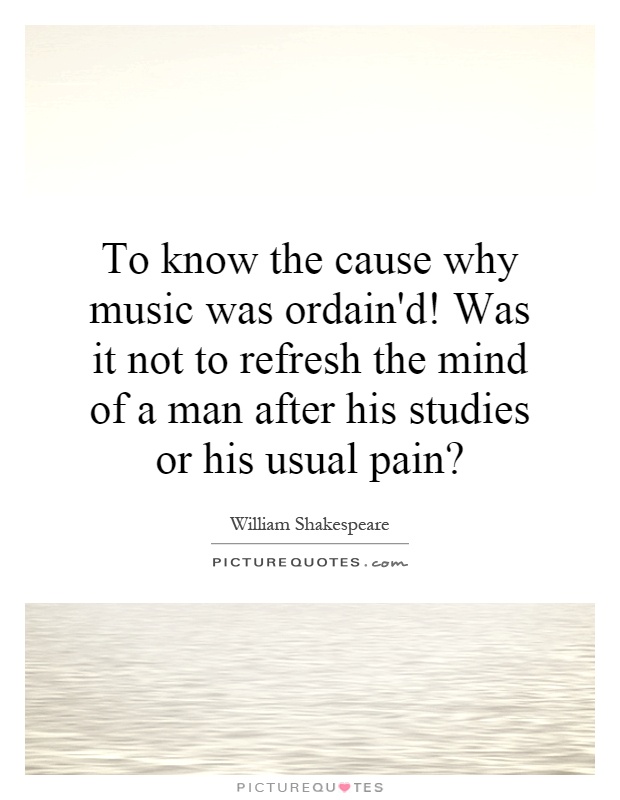To know the cause why music was ordain'd! Was it not to refresh the mind of a man after his studies or his usual pain?

To know the cause why music was ordain'd! Was it not to refresh the mind of a man after his studies or his usual pain?
William Shakespeare, the renowned playwright and poet, often explored the power and purpose of music in his works. In his play "The Merchant of Venice," Shakespeare delves into the idea that music serves as a means of refreshment for the mind, providing solace and relief from the burdens of daily life. The character Lorenzo muses on the significance of music, questioning its purpose and origin in the lines, "To know the cause why music was ordain'd! Was it not to refresh the mind of a man after his studies or his usual pain?"Shakespeare suggests that music has a divine purpose, ordained by a higher power to bring comfort and joy to humanity. The idea that music can soothe the soul and provide respite from the toils of life is a recurring theme in Shakespeare's works. In "Twelfth Night," the character Orsino famously declares, "If music be the food of love, play on," highlighting the transformative power of music to heal and uplift the spirit.
Music has the ability to transcend language and cultural barriers, speaking to the universal human experience of joy, sorrow, and longing. Shakespeare understood the profound impact that music can have on the human psyche, using it as a tool to evoke emotion and create atmosphere in his plays. From the haunting melodies of the witches in "Macbeth" to the lively songs of the fairies in "A Midsummer Night's Dream," music plays a central role in shaping the mood and tone of Shakespeare's works.












 Friendship Quotes
Friendship Quotes Love Quotes
Love Quotes Life Quotes
Life Quotes Funny Quotes
Funny Quotes Motivational Quotes
Motivational Quotes Inspirational Quotes
Inspirational Quotes